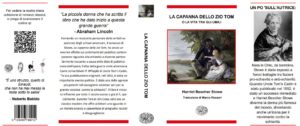Valentina Abbatelli (University of Warwick)
My work on EDI has gradually developed over the past three years as Assistant Professor and Language Coordinator in Italian Studies at the University of Warwick. I started working on including EDI elements in my teaching in the Italian language class as part of the process of decolonising the curriculum. In 2020, I redesigned the syllabus of our Italian final-year language module, successfully integrating topics such as Black Lives Matter in Italy and the debate on inclusivity in Italian language, in order to challenge cultural stereotypes and foster students’ critical thinking when engaging with global phenomena. This work is detailed in the chapter ‘BLM and ə: Introducing Diversity in the Syllabus Design’, included in the volume The Art of Teaching Italian, ed. by Giulia Guarnieri, Georgetown University Press (forthcoming).
In the same year, I worked on the diversification of assessments of the Italian Studies curriculum designing a module on the Italian history of publishing, whose final assessment requires students to become creators of a publishing product. They design a book edition using a publishing software and accompany it with a reflective piece. This type of assessment promotes a deeper understanding of the subject and helps students to develop transferable skills, such as creative and critical thinking, IT skills, independent research. All students are offered technical support for their digital project and are graded on their subject-relevant knowledge, rather than technical skillset alone.

Keeping in mind the impact that the Covid-19 pandemic had on the students on their year abroad, I designed a Virtual Language Exchange with the University of Genoa, to give students who had cut short their YA the possibility to develop their speaking and intercultural skills. The Exchange started in January 2022 as part of the final-year language module. Students work collaboratively with their Italian peers for ten weeks engaging with different tasks (e.g. designing a sustainable project of their choice, preparing an oral presentation, providing peer-feedback, recording a bilingual podcast). The Exchange is not compulsory; students with specific learning difficulties who prefer not to be involved have a parallel set of tasks to complete in preparation for the oral classes. It is also an extremely important sustainable tool for students who do not to go abroad during their degree, providing them with an intercultural experience which is integral to a degree in Modern Languages.
Finally, this year, as Deputy Director of Teaching and Learning in the School of Modern Languages and Cultures, I collaborated on a series of initiatives that had a wider impact on the School policies. I started a cross-School reading group, together with the Director of Teaching and Learning Leticia Villamediana González, which discussed the decolonisation of the curriculum, seeking to spark a cross-School conversation on initiatives that can be organised both in language and in cultural modules like syllabus revision, diversification of assessments and the development of a pedagogy of care in the classroom. I also initiated a cross-School conversation on the use of gender-neutral language in the language classroom, and this led to the implementation of policies for assessment of language work to facilitate the use of gender-neutral language for non-binary students.
Much work has been done on EDI recently in Modern Languages, however EDI has many different areas of application. It is not only concerned with curriculum revision in terms of content, but it also intersects pedagogic practices and ethics of care in the classroom. I believe that these areas, alongside initiatives that take into account neurodiversity with a particular focus on assessments, are some of the EDI future challenges that I am committed to keeping tackling by developing empathy in the classroom and working with colleagues and students in order to diversify assessment methods.
